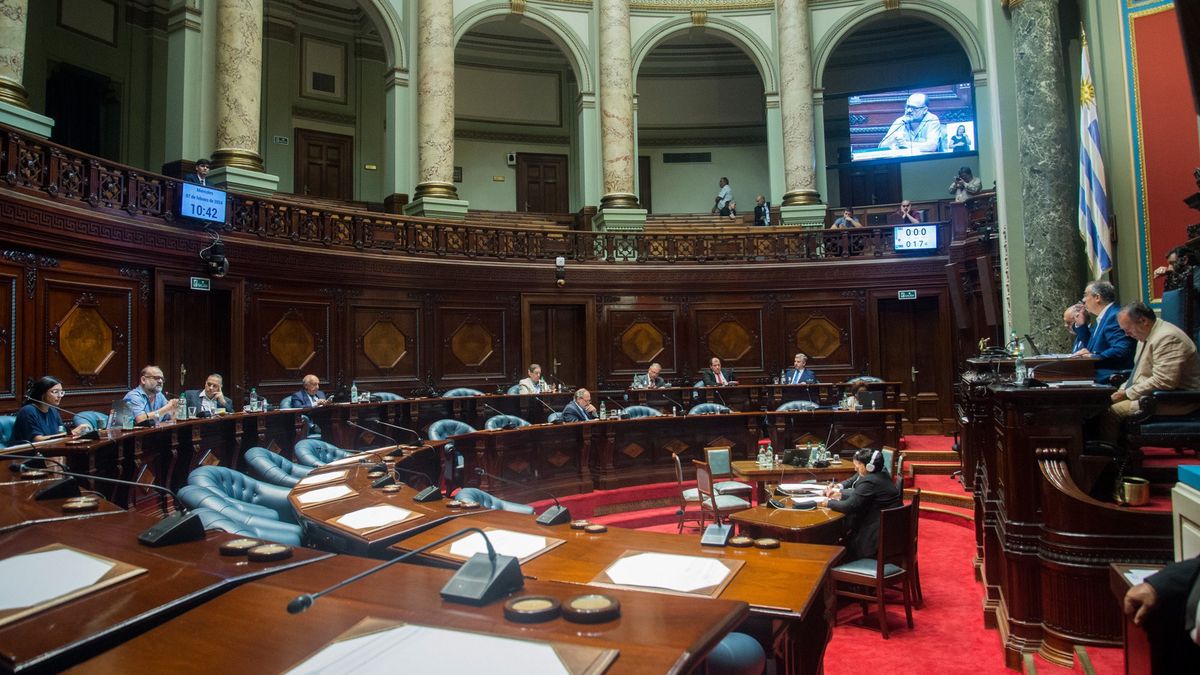The unrest within the government coalition increases with the different obstacles that Open Town Hall (CA) is putting into projects that, from the ruling party, they consider key for the last year of the current administration. Now, the point of contention is that the sector led by Guido Manini Ríos once again stopped the adhesion to Patent Cooperation Treaty (TCP)a fundamental issue for the entry of Uruguay to the Trans-Pacific Partnership (CPTPP).
The project to join the TCP was sent by the president Luis Lacalle Pou to the Parliament in October of last year, with the objective not only of expanding the markets to which the country has access in terms of trade, but also to advance the conditions that the eleven countries that make up the Cptpp set for the entry of new partners. To date, 157 countries have ratified international patent regulations, and Uruguay is not among them.
On Tuesday, the Parliament began to discuss the bill, strongly defended by the ruling party and a good part of the local scientific and academic environment—among which stands out the Uruguayan Chamber of Information Technologies (CUTI), For example-; but with the votes of Wide Front against and the uncertainty of whether the necessary majority would be reached for the discussion to go to the senate.
Among the aspects highlighted in opposition is concern about the impact that the treaty could have on sectors such as local industry of the medicine, he cost of high-cost drugs or the access of small and medium agricultural producers to generic seeds in the event that patenting criteria and applications are unified at the international level. In favor, however, they point to the need to “compete under the same rules used by developed countries and large developing economies” and establish “minimum standards” to improve the conditions of competitiveness from the country.
The stick in the wheel of Cabildo Abierto
Finally, the bill to ratify the TCP found the main obstacle in Cabildo Abierto, and the initiative returned to the Science and Technology Commission after the Manini Ríos sector requested that a “substantial” modification be introduced.
“We understand that the agreement is necessary, but it is also necessary to protect certain industries. We are not asking for anything strange, it is something that other countries have done,” said the lobbying senator at a press conference, and explained that the party considers that industries such as medicines or fertilizers would be affected.
Given this scenario, the requested modification consists of Uruguay can make one “booking” of Chapter II of the agreement that refers to the “international preliminary examination” of patent applications, as this would be the most detrimental aspect for the national industry. That is, CA seeks to exclude the country from the legal effects of certain provisions in their application, as they did USA either Swiss, as they argue.
However, since National Party They consider that the lobbying attitude is “unintelligible and incomprehensible,” as the deputy pointed out. Rodrigo Goñi in dialogue with El País. For the white legislator, the reservation does not protect the national industry, but it is preferable to add this provision in exchange for positive votes to the alternative of adhering to the TCP being ruled out and, with it, the possibilities of Uruguay to enter the Cptpp.
Doubts on the Broad Front
For his part, the Wide Front He had announced that he would vote against the project, in a line of argument similar to that of Cabildo Abierto. However, since Uruguay Assembly they had asked for “freedom of action” to be given to support him; something that, in the end, did not prosper.
The surprise was the pre-candidate of the left coalition and mayor of Montevideo in use of license, Carolina Cosse, who ratified his support for joining the TCP, despite the fact that his party’s bench voted against. Understandable, considering that she herself promoted the ratification of the agreement when she was minister of Industry, Energy and Mining (MIEM) in 2016.
“I think it is really necessary for the Uruguay. In the other way, what is happening today is that scientists, when they need to have the chance that their invention or discovery can access a patent, end up partnering with a scientist from another country who does have a patent. Patent Treaty”, considered Cosse in dialogue with El Observador.
“Uruguay has to adhere to that treaty. It is not the only thing you have to do, but it seems to me that it would be a mistake not to support it,” he concluded, and confirmed: “I would vote for it.”
What is the Patent Cooperation Treaty?
He Patent Cooperation Treaty (TCP) It is an international treaty administered by the World Intellectual Property Organization (WIPO) whose main objective is to simplify and make more economical the procedure for filing an international patent application both for users of the patent system and for the offices in charge of managing the processes.
Among the main aspects, the TCP allows presenting a single patent application and in a single language for international protection in various countries; allows an easier process for submitting the application; unifies presentation and protection criteria in multiple countries at the same time; and promotes the scientific, technological and economic development of the country by allowing scientists and academics to have protection of their inventions at an international level without having to resort to other countries that are adhering to the agreement.
For Uruguay, Furthermore, it constitutes an essential gateway to the Trans-Pacific Partnership.
Source: Ambito




